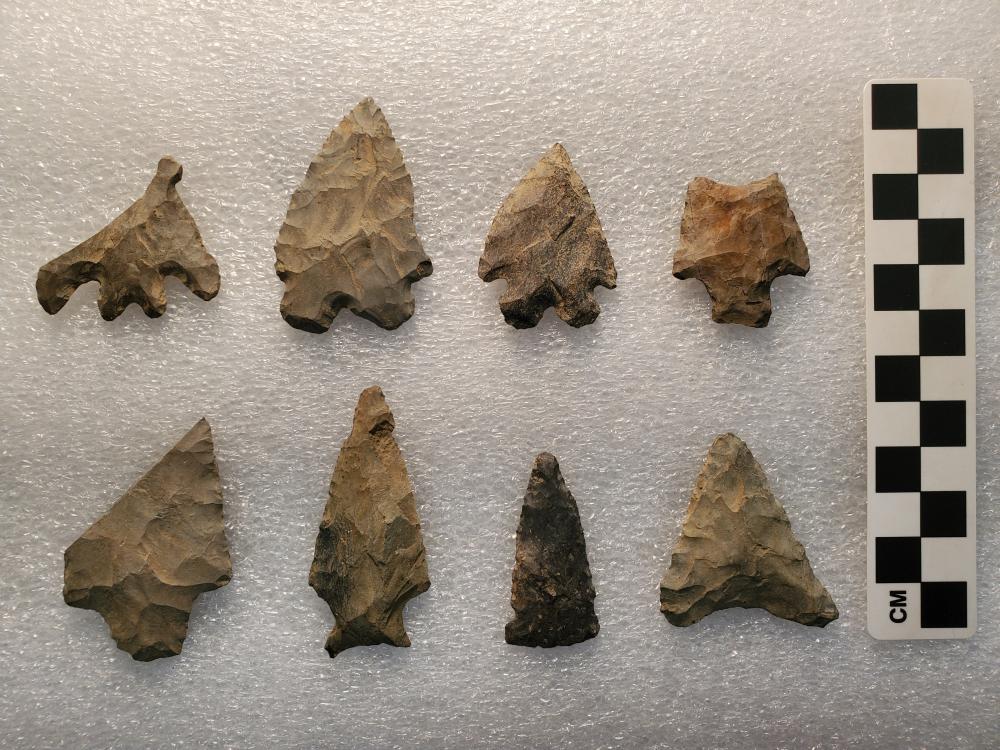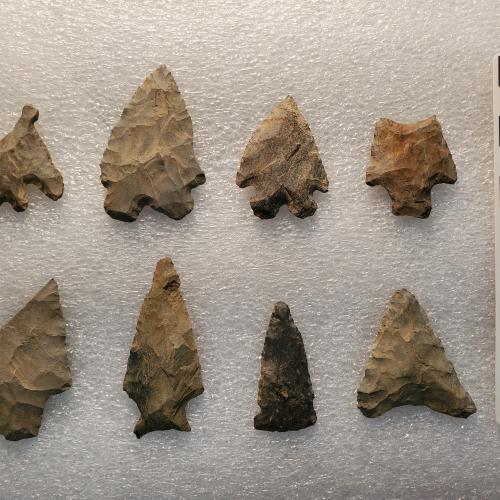Over the years, the NYSM has received donations of some very large archaeological collections numbering hundreds of thousands of specimens, but small collections can also be important accessions. Born in 1909, Roger McVaugh grew up on his parents’ small hog farm north of Kinderhook, Columbia County, in the ancestral territory of the Mohican people. As a young man in the 1920s, Roger collected these stone tools while plowing his family's farmland, and recently, Roger’s son Michael donated the collection to the NYSM. This small group of about 50 objects consists mostly of projectile points. Made by percussion flaking of fine-grained stone, these points were lashed to the tips of hunting weaponry. Based on documented changes in form through time, this collection records as much as 9000 years of indigenous history in what is now Columbia County. The NYSM curates few archaeological artifacts from east of the Hudson, so the McVaugh collection represents an important accession that sheds light on the timing and duration of indigenous presence there. Importantly, these and other archaeological collections and sites from this part of the Hudson valley continue to hold special significance for the Stockbridge-Munsee Mohican Nation as part of their cultural heritage The NYSM takes its trust role in stewarding archaeological collections such as this seriously, recognizing the importance to indigenous Nations as well as the insights offered regarding the state’s human past.
The McVaugh Donation: Insights on Hudson Valley Indigenous History

Here are some examples of Native American projectile points in the recently donated McVaugh collection.
Examples of stone projectile points in the McVaugh collection. Top row: notched and stemmed points dating between circa 10,000 and 7500 years before present (BP). Bottom row: stemmed, side-notched and triangular point forms, ranging in age from about 4000 to 1000 years BP.




